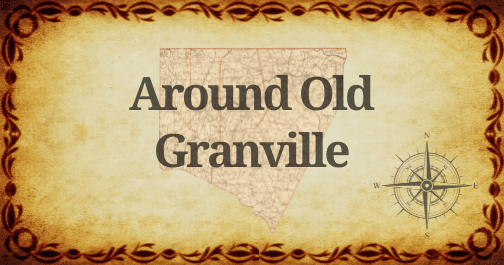Watch out, Oxford. Your tiny neighbor to the south is gaining on you. It will only take a couple of hundred more people to stake the claim of being the largest town in Granville County.
That, according to local historian Mark Pace, who talked with WIZS’s Bill Harris for the “Around Old Granville” segment of The Local Skinny! Monday.
Butner’s growth today, however, pales in comparison to the early to mid-1940’s when the U.S. government built Camp Butner as it was gearing up for World War II.
Pace said William B. Umstead and his brother John were instrumental in getting the federal government to locate Camp Butner in the southwest corner of the county, close to a big city (Durham), but not “too” close, Pace said.
Construction began in February 1942, on more than 4,000 acres of mostly farmland, much of which had been owned and worked by families for 200 years or more.
“It was amazing how quickly it was built,” Pace said. Within five months, there were numerous structures, including an armory, sports building and a water tower, all of which are standing today.
“They had 15,000 people working 24-7 to build that camp,” Pace said. And because it was a federal project, the state’s segregation laws were superseded by federal jurisdiction, which meant that for the first time, African Americans were hired the same as their White counterparts, he added.
Camp Butner was home for thousands of workers, civilian and military, but also for more than 4,000 German and Italian prisoners of war.
“So many farm people had been called up to serve, POWs would go and work farms,” Pace said. “And they’d get paid a little bit, too.”
After the war ended, much of the property reverted back to the landowners, but the footprint of Camp Butner became what is now considered the town of Butner. But until it was incorporated in 2007, the town was run by the state of North Carolina.
“Go to the town hall,” Pace said. “There’s a marvelous museum in the lobby” chronicling the creation of the town that once was known as Camp Butner.
CLICK PLAY!
